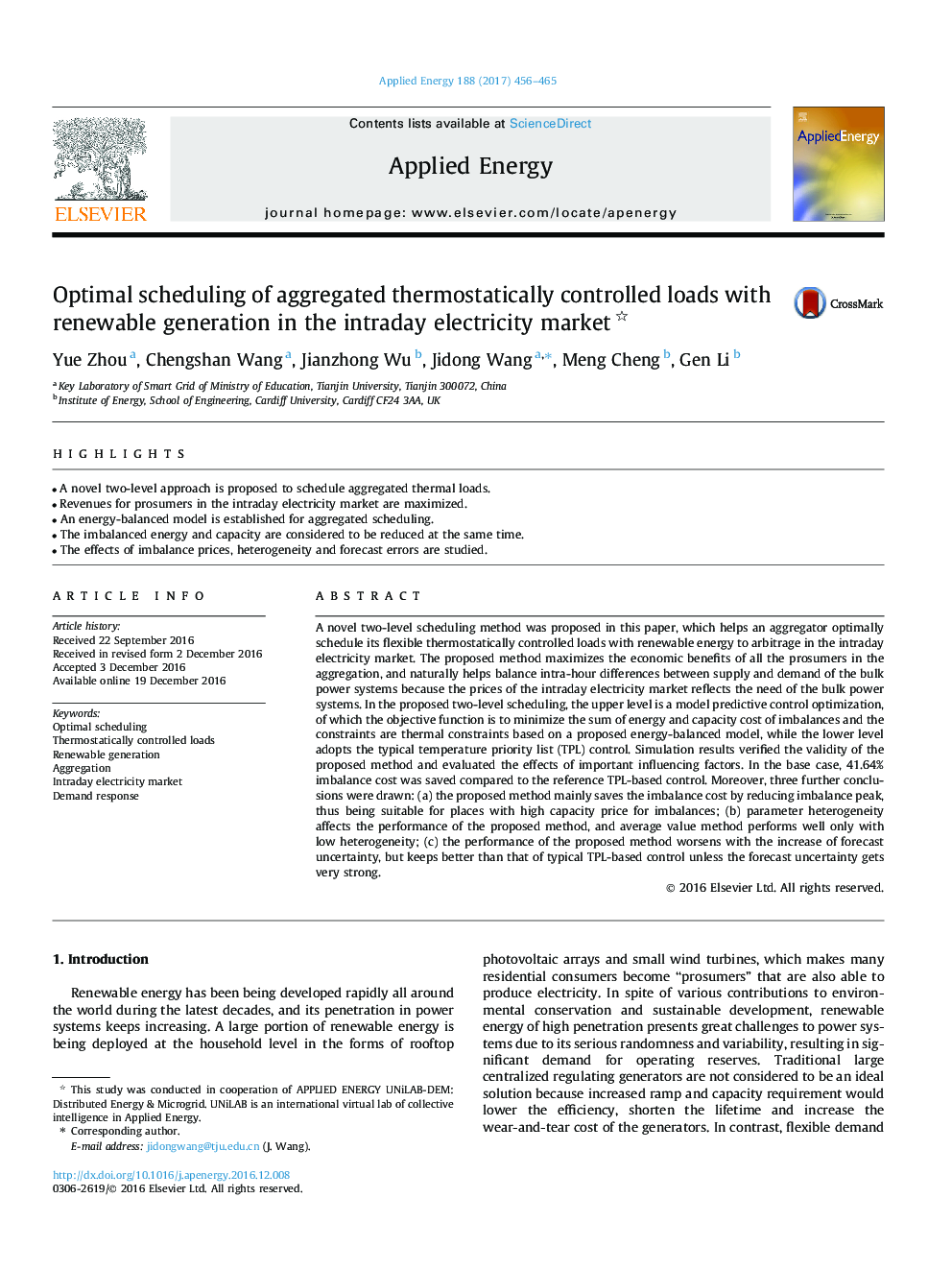| Article ID | Journal | Published Year | Pages | File Type |
|---|---|---|---|---|
| 4911148 | Applied Energy | 2017 | 10 Pages |
Abstract
A novel two-level scheduling method was proposed in this paper, which helps an aggregator optimally schedule its flexible thermostatically controlled loads with renewable energy to arbitrage in the intraday electricity market. The proposed method maximizes the economic benefits of all the prosumers in the aggregation, and naturally helps balance intra-hour differences between supply and demand of the bulk power systems because the prices of the intraday electricity market reflects the need of the bulk power systems. In the proposed two-level scheduling, the upper level is a model predictive control optimization, of which the objective function is to minimize the sum of energy and capacity cost of imbalances and the constraints are thermal constraints based on a proposed energy-balanced model, while the lower level adopts the typical temperature priority list (TPL) control. Simulation results verified the validity of the proposed method and evaluated the effects of important influencing factors. In the base case, 41.64% imbalance cost was saved compared to the reference TPL-based control. Moreover, three further conclusions were drawn: (a) the proposed method mainly saves the imbalance cost by reducing imbalance peak, thus being suitable for places with high capacity price for imbalances; (b) parameter heterogeneity affects the performance of the proposed method, and average value method performs well only with low heterogeneity; (c) the performance of the proposed method worsens with the increase of forecast uncertainty, but keeps better than that of typical TPL-based control unless the forecast uncertainty gets very strong.
Keywords
Related Topics
Physical Sciences and Engineering
Energy
Energy Engineering and Power Technology
Authors
Yue Zhou, Chengshan Wang, Jianzhong Wu, Jidong Wang, Meng Cheng, Gen Li,
